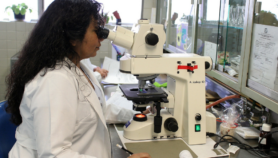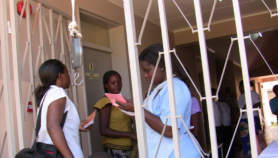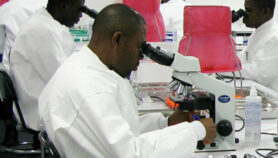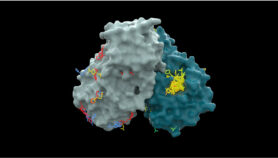Send to a friend
The details you provide on this page will not be used to send unsolicited email, and will not be sold to a 3rd party. See privacy policy.
Funding for tuberculosis (TB) research barely rose in 2006 and urgently needs dramatic increases, says a report by a research and policy think tank.
The report by the Treatment Action Group was released last week (7 November) at the 38th Union World Conference on Lung Health, in Cape Town, South Africa.
It shows that funding increased by US$20 million to US$413 million in 2006 from 2005 levels. But because of inflation and disparities in funders reporting their donations, no significant increase was made.
The Global Plan to Stop TB had previously estimated the required research spending needed to reduce incidence and death by 50 per cent in 2015 from 1990 levels, and eliminate TB as a public health threat by 2050.
That estimate was US$900 million a year is needed over the next decade. But the new report says total funding of US$2 billion per year is needed — a five-fold increase from 2006 levels.
According to the report, investment from governments fell as a proportion of total funding, from 68.5 in 2005 to 59 per cent in 2006.
Funding from private donors increased from 20 to 27.7 per cent — though not enough to make up for the loss of public funding.
There are advantages to the increasing engagement of philanthropists, says Mark Harrington, executive director of the Treatment Action Group. "People like [Bill and Melinda Gates] are able to move quickly, whereas governments can take 2–3 years to disburse pledged funding, unless they perceive something to be an emergency."
Money provided for diagnostic, drug and vaccine R&D increased in 2006 — thanks largely to focused funding by the Gates Foundation.
But basic research into the fundamental biology of the TB-causing bacteria Mycobacterium tuberculosis and related organisms fell by US$7 million, while operational research — epidemiological and surveillance studies, and studies of new and existing drugs — fell by US$19.4 million.
"If we don’t fund basic science, the pipeline will run dry in a few years — even now it’s only a trickle," says Harrington.
The report says funding in Brazil increased dramatically by 434 per cent to just over US$4 million in 2006. And South Africa reported funding for TB research for the first time.
Harrington says this is a promising sign. "We can’t rely on donors in rich countries to solve all problems. Developing countries also have a role to play in developing their research capacity for their own health problems."













